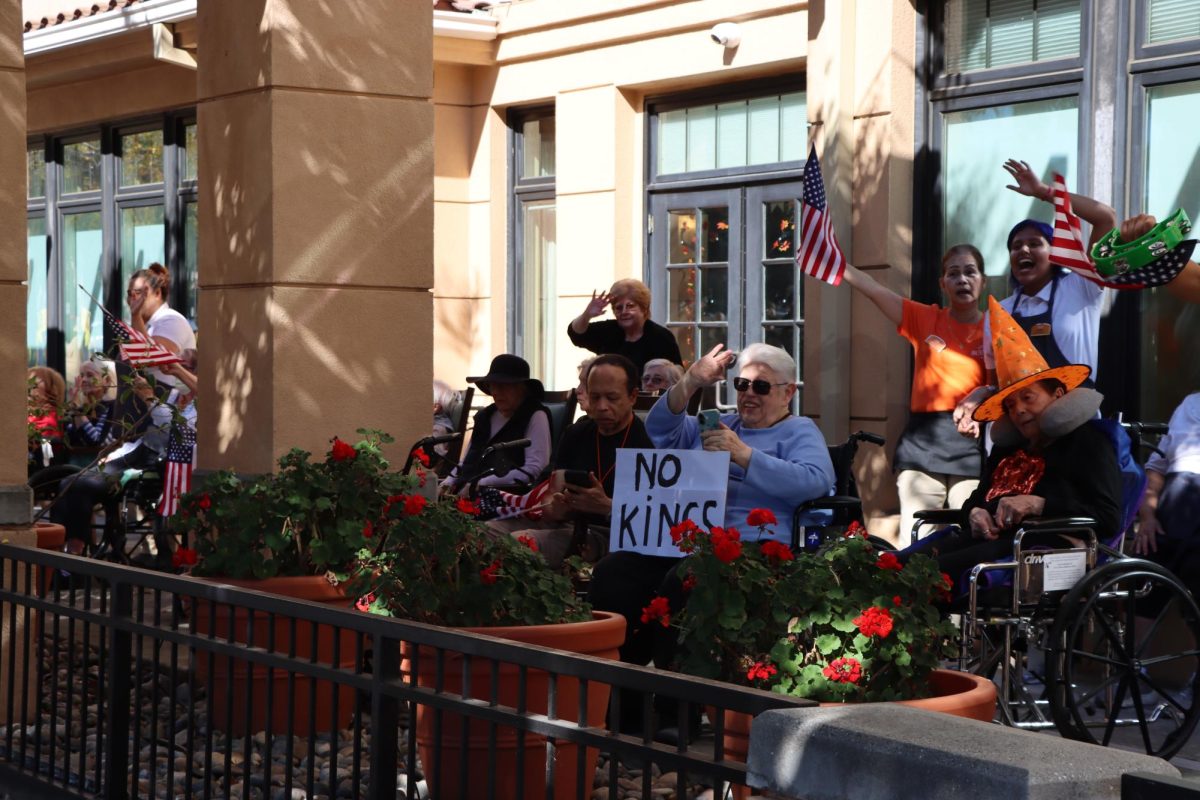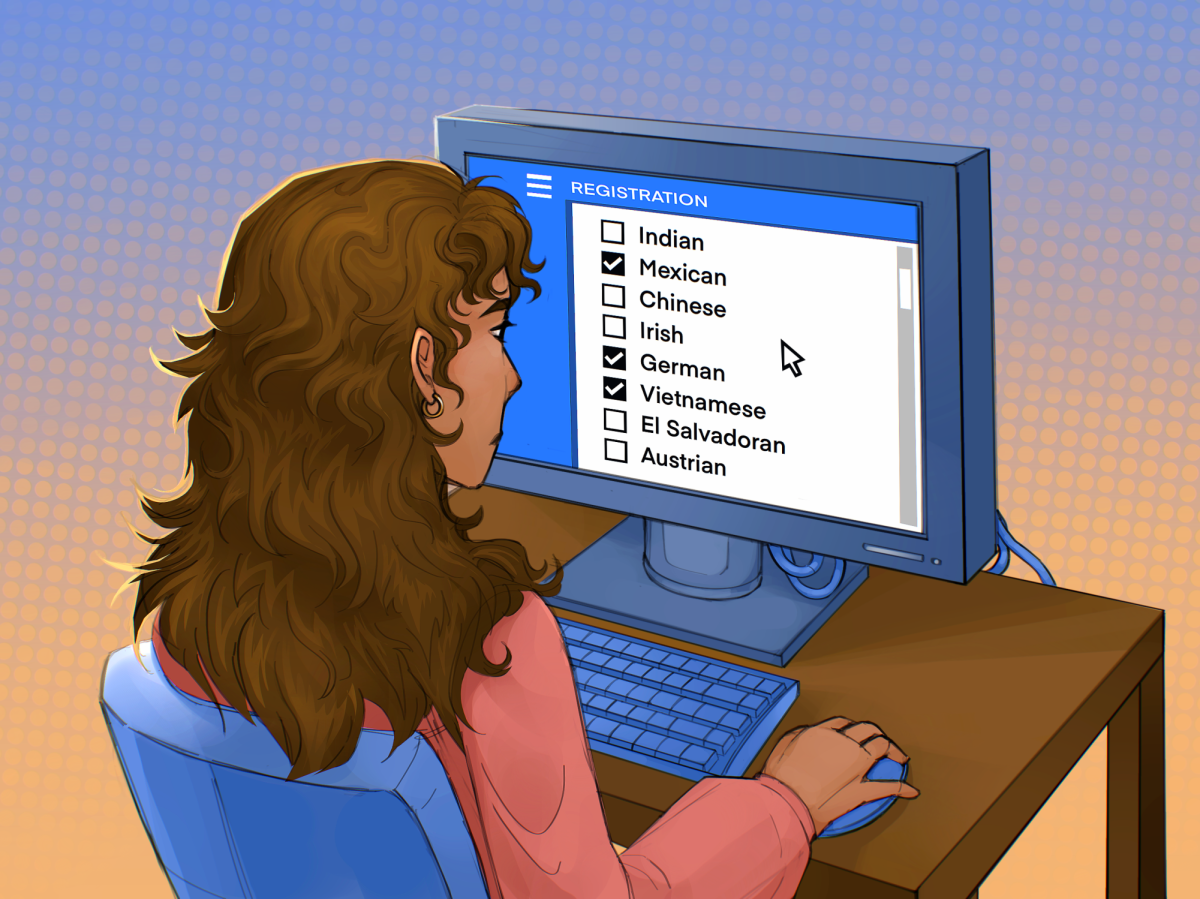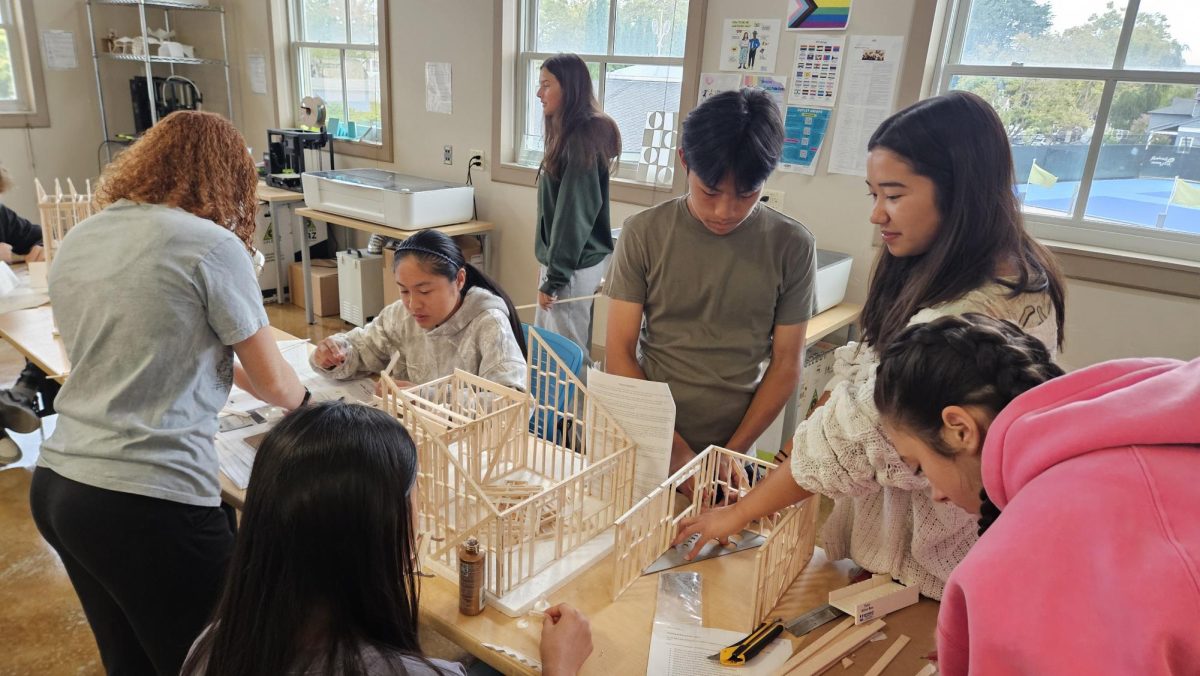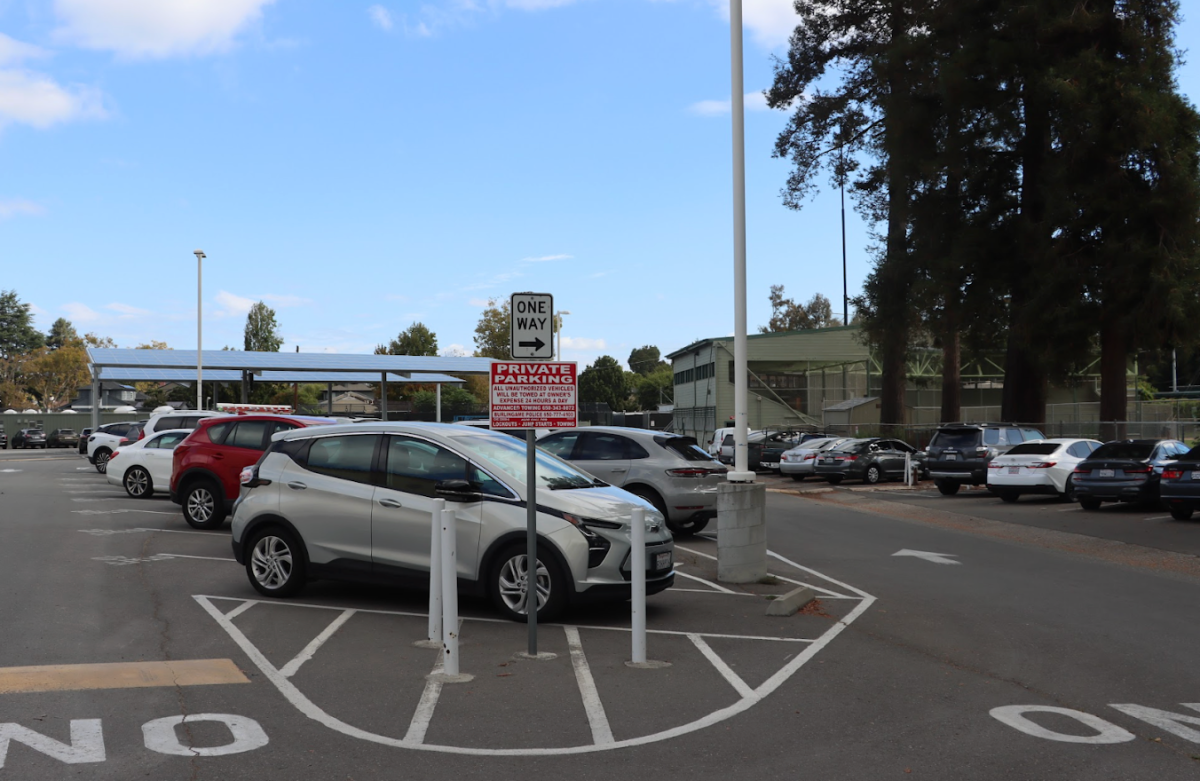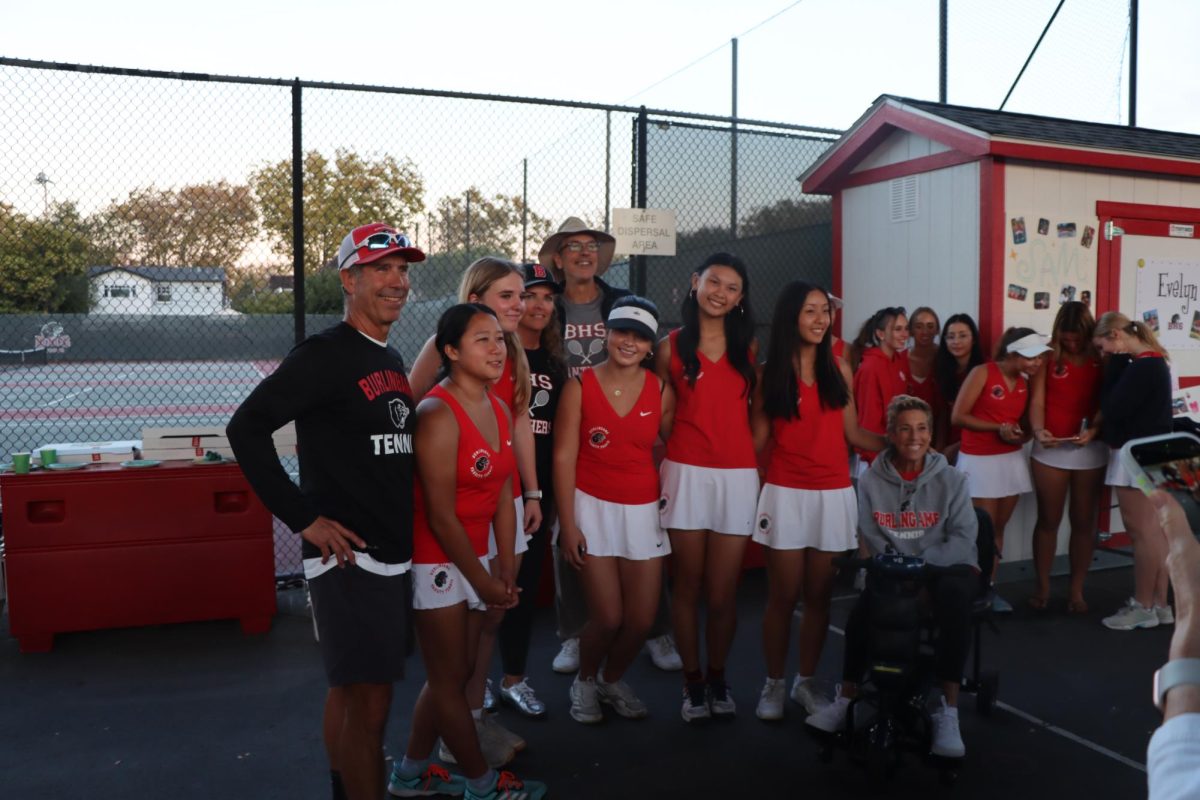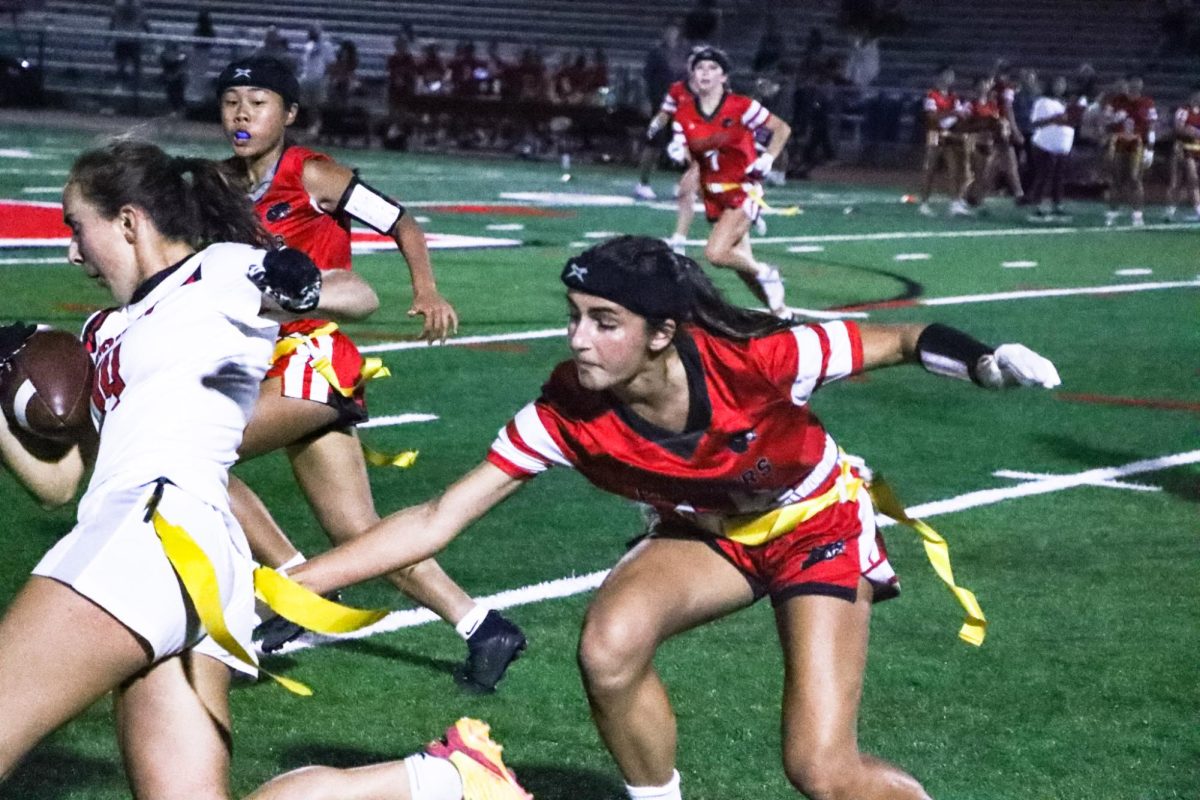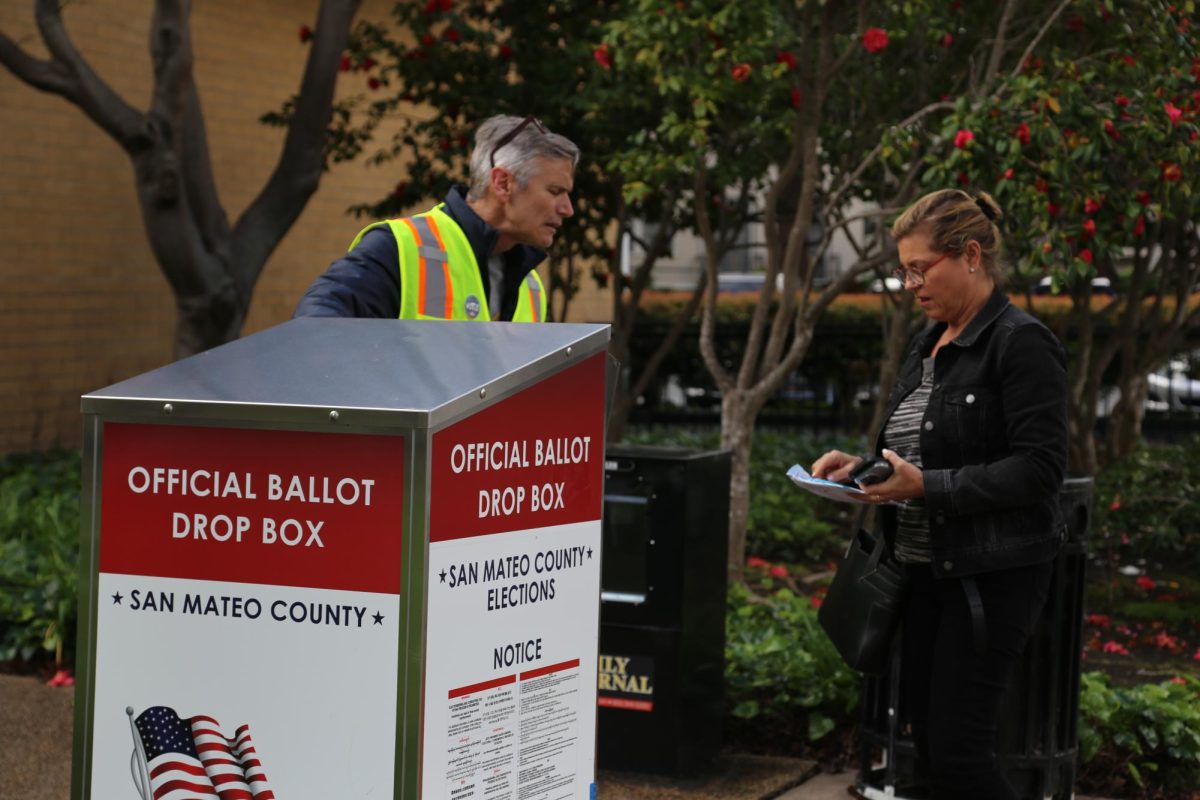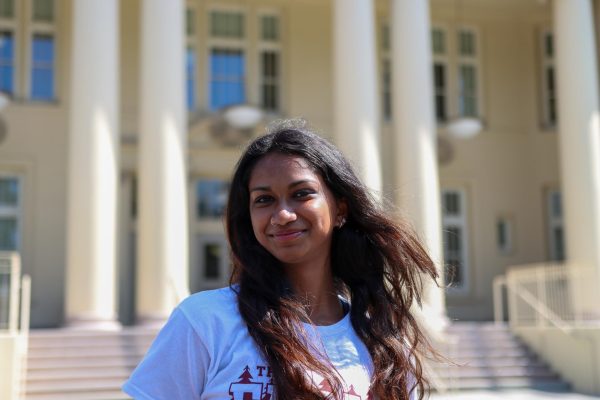On Tuesday, March 5, Californians, including Burlingame seniors, voted in the 2024 primary election. While primary elections are held every two years to establish the top candidates for various state, county and city positions, the most recent primary also determined which presidential candidates would be running in the general election on Nov. 5. And while seniors turn 18 every year, this year’s seniors turned 18 and immediately had the chance to participate in an official election that would impact their country.
“I feel excited because it was frustrating to feel powerless when there [was] a lot of injustice going on in our earlier high school years,” senior Astrid Carlen said before mailing in her ballot. “Although it’s also an overwhelming responsibility, and I feel like I need to do a lot of research.”
Outside influence
Because Carlen was looking forward to the autonomy of the voting process, she was careful to ensure that her voting decision was her own. However, she noted how difficult it is to tune out others’ opinions, especially those of family and friends.
“Every opinion we have, especially when we’re younger, is a variety of outside sources influencing ourselves,” Carlen said. “It’s kind of hard to know where the line between what you think and what you’ve been told is, but I do hope I can sort through the outside influences and think for myself.”
Additionally, in a state like California, which has consistently voted for Democratic presidential candidates since 2000, it’s easy to skip researching candidates and instead vote with the state majority.
“I think it can be hard to focus on your own opinion,” Carlen said. “I feel like especially since in Burlingame, a lot of people have similar perspectives. There’s an overall bias, so you hear so many people around you echoing the same thing, you can kind of fall into agreeing.”
On the other hand, senior Jack McMahon embraced others’ perspectives when deciding who to vote for. He believes outside influences are a great way to make informed decisions, but it is important to look out for bias.
“I wouldn’t say that tuning out the noise is the best way for me to decide,” McMahon said. “I think there are always going to be helpful perspectives that you’ll get from other people. Vote on your own accord but take into consideration what other people have to say.”
Besides candidates, voters also voted on propositions and will do so in the general election as well. Advanced Placement Government and Economics teacher Matthew McDermott feels that due to the complexity of the propositions, more attainable is to at least have a general understanding of each proposition to make informed decisions. McDermott feels that outside sources are useful for this purpose.
“Maybe I’m supposed to say, ‘Read the actual web pages of the candidates. Read the actual proposition, make your own decision,’” McDermott said. “But we live in an era where it’s not about access to information, it’s about processing information. So I’ve always been a big proponent of being able to process secondary sources.”
Lack of motivation
According to McDermott, many voters can feel unmotivated to cast a ballot due to the Electoral College system. The Electoral College functions so that states each get a proportional amount of electoral votes, which are submitted to vote for the president and vice president of the United States. Each state’s number of electors is the sum of its House of Representatives members and senators. Under the “winner take all” system, the candidate who wins a majority of votes in a state takes the entirety of its Electoral College votes. There have been five occasions when candidates have won the Electoral College vote and become president despite losing the nationwide popular vote cast by the citizens.
“One of the difficult things in order for [voters] to be prepared for any election [is] they have to feel like it’s worthwhile. And so it doesn’t feel like this election is worthwhile,” McDermott said. “America is a fairly indirect democracy that’s very flawed….So the federal election doesn’t really have any real consequence in March, and the system itself feels extremely dysfunctional. And therefore, why should [voters] be prepared?”
Political climate
Now more than ever, the Democratic and Republican parties directly oppose each other on various issues, which only increases political division.
“I think the current political climate is very, very polarized,” McMahon said. “And that’s something that we need to actively work to fight against. Because as we look to the future, polarization and divisions are things that are going to hinder us from being able to continue to create effective policy and create change that we so desperately need in our country.”
About 47% of California’s independent voters support the Democratic party, while only 26% lean towards the Republican party, and the remaining 27% do not identify with either party. While these statistics do not indicate much polarization in California, McDermott believes that as Burlingame seniors gain more exposure to the rest of the country through traveling and college, they will discover how divisive the political climate is
“As far as the nation as a whole, our young folks here in the Bay Area, I feel like it’s hard for them to truly understand what it’s like in the rest of the country,” McDermott said. “People are so caught up in their own media bubbles that they don’t know what exists other than what they read about it. As many of our seniors go and study in other parts of the country, I think they’ll be more exposed to that polarization, to the misinformation, and to the toxicity of those debates.”
Additionally, because the Democrat and Republican parties are so different, it’s easy to vote down the party line. This enables people to mindlessly cast their votes for one party over another instead of researching individual candidates and deciding based on their personal policies, Carlen observed.
“People are very much aligning with a candidate as opposed to looking into issues for themselves to see what that person supports,” Carlen said.
Why does voting matter?
Even if it sometimes feels like voting is not worthwhile, every vote counts towards ensuring fairness and that, ideally, the laws and appointed leaders of the United States reflect the opinions of the people.
“Democracy only works when you [vote],” Carlen said. “You have to put in the work in order to ensure that you [have a functioning democracy].”
McMahon agrees that if the nation is to see positive change, everyone must take action and do their part to make their voice heard.
“[It’s important to] use your voice just to influence change, because people are always going to be upset about things, there are always going to be issues that are important, but if you’re not voting then you’re not making a difference,” McMahon said. “You’re not using your voice to create the change you want to see.”

